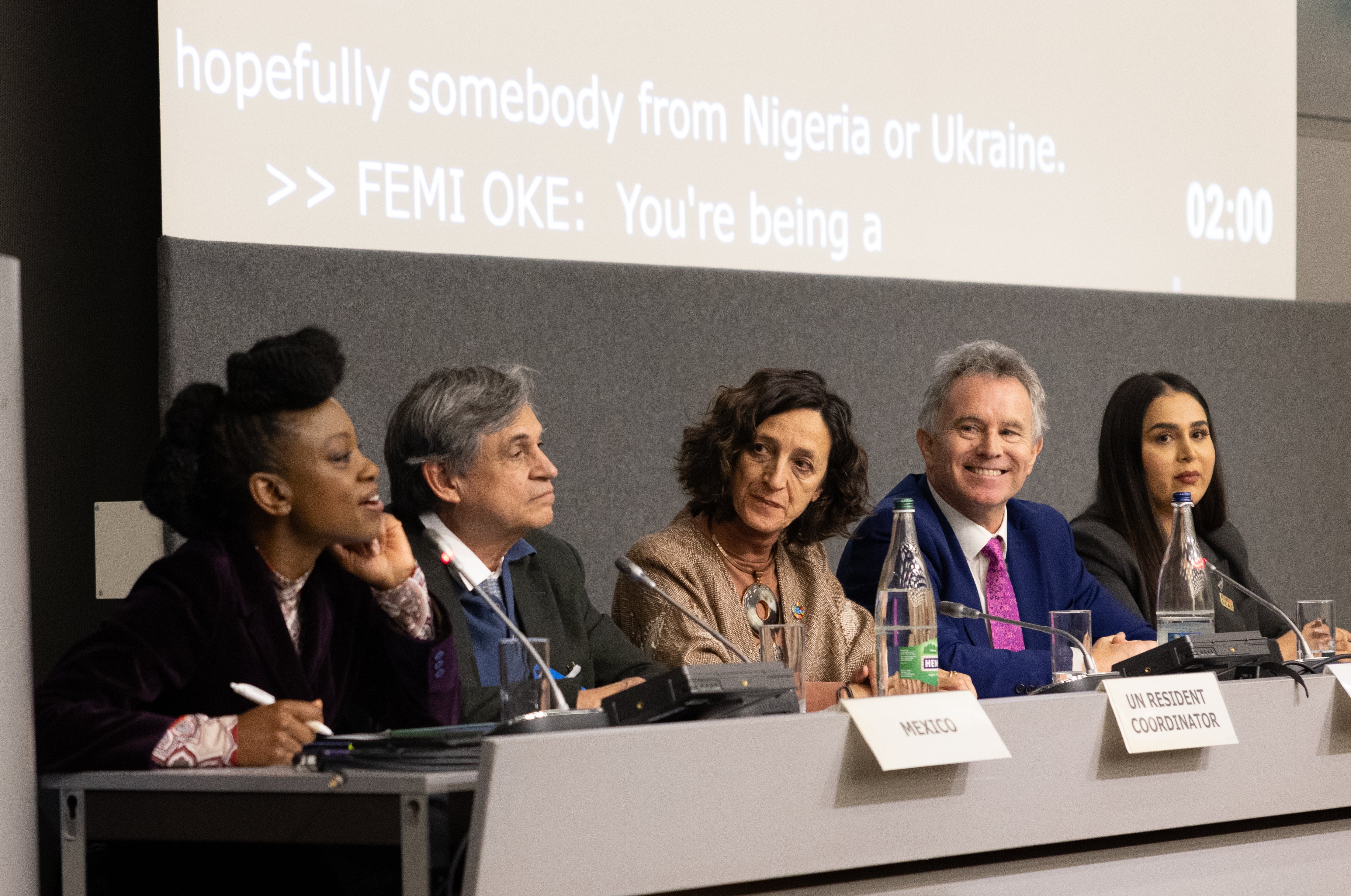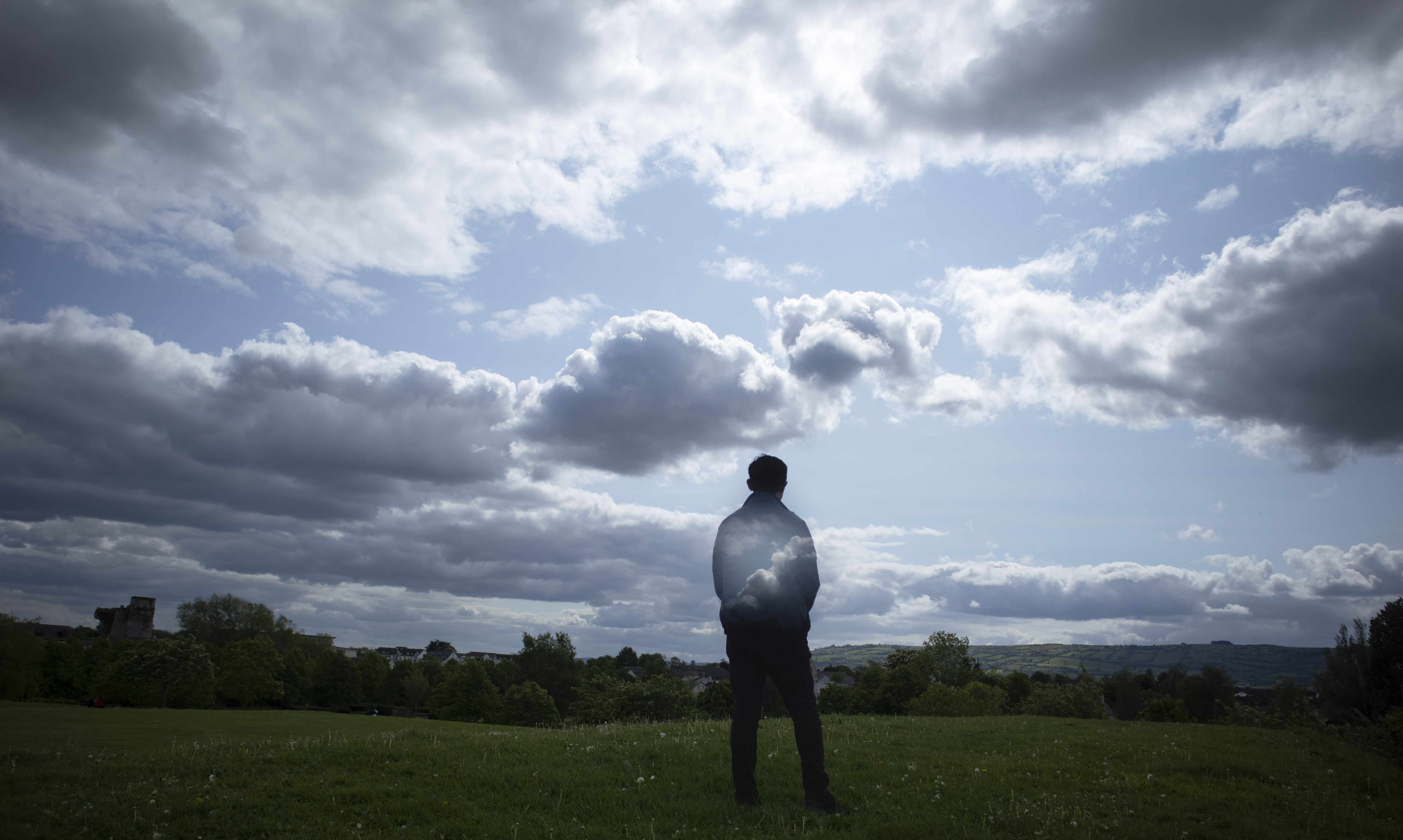From the Nore to Niger –the Kilkenny woman working with refugees in West Africa
From the Nore to Niger –the Kilkenny woman working with refugees in West Africa

With a total of 336,108 persons of concern living in Niger, the work of humanitarian organisations is more pressing than ever. In this interview, Kilkenny native Louise Donovan sheds light on the work of UNHCR on the ground in the West African country and how UNHCR is providing humanitarian assistance to those most in need.
1. What first drew you towards working for UNHCR?
For as long as I can remember I’ve wanted to work in the humanitarian sector. With all of the images in the media of disasters and conflicts, I’ve always felt drawn to working in the area of humanitarian aid. During my time in the University of Limerick, I was fortunate enough to have the opportunity to spend a semester volunteering for an NGO in Ghana, and later with an NGO in India. After these experiences, I was sure that the humanitarian and development sector was where I wanted to be.
2. Could you tell me how long you have been working in Niger and provide me with a brief description of your day-to-day work?
I took up my post with UNHCR in September 2015 and I am based in the capital city of Niamey. As Associate External Relations Officer, I work mainly on fundraising, donor relations and communications. Our team develop proposals for projects based on the most pressing humanitarian needs. We monitor the progress of projects and provide feedback to donors. We are also involved in publishing communication and information materials on the operation, and write a regular blog on the operation. We are a large operation with two main refugee caseloads – those fleeing conflict in Mali, and those fleeing the violence of Boko Haram in Northern Nigeria.
3. What do you like most about working for UNHCR?
What I enjoy most about working with UNHCR is having the opportunity to meet people from a huge variety of backgrounds, all with the same desire to assist in humanitarian crises. Day–to-day work is always interesting, challenging and never boring. I’m fortunate enough to have the opportunity to meet with refugees and to discuss their lives and issues affecting them. I believe that UNHCR and our mandate have never been more relevant than they are today. It is essential that people understand the importance of assisting those fleeing violence and conflict, and I’m very grateful to be working for UNHCR in this difficult time of crisis.
4. What are the biggest challenges facing UNHCR in Niger currently?
The two main refugee groups in Niger are Malian and Nigerian refugees. Malian refugees began to arrive in Niger following the outbreak of conflict in Mali in 2012. In 2015 the Algiers Peace Accord was signed between various conflicting parties, government and rebel groups. It was expected that many refugees would return to Mali following the Peace Agreement. However inter-ethnic conflicts in the North of the country continue to persist and in fact 7,000 new Malian refugees arrived in 2015. There are now over 60,000 Malian refugees in Niger however the budget for the operation is the lowest it has ever been.

For the Nigerian situation, the conflict with Boko Haram spread into Niger at the beginning of 2015, with the first attacks in the Diffa region in February 2015. Attacks have continued in the region since then, causing massive displacements, both from Northern Nigeria and internally in the Diffa region. There are now around 68,000 Nigerian refugees, 70,000 Nigerien returnees and 137,000 IDPs (Internally Displaced Persons) in the region. The needs have multiplied, while the insecurity makes mobility and delivery of assistance challenging. The economy has been severely affected, and even host populations are in desperate need of assistance.
5. What is the current situation with regards to Malian and Nigerian refugees currently living in Niger?
With over 60,000 Malian refugees in Niger and a much reduced budget, UNHCR are focusing on strengthening the self-reliance of the refugees, and assisting in their integration into the local communities. We are working closely with the government to improve basic infrastructure – like health centres, schools and water supply systems, to benefit both the refugee and the local populations. We have three refugee camps and two ‘refugee hosting areas’ where the majority of the refugees live. They are being supported in income generating activities, and are receiving training in activities that will help them to become self-reliant and reduce their need for aid. Unfortunately the situation is not yet showing signs of improvement in Northern Mali, with many small scale conflicts. When the situation allows, UNHCR will assist and support the refugees to return home to rebuild their lives.

In the Diffa region, the situation is very challenging and complex. With the massive displacements which took place during the past year, it is extremely difficult to differentiate between the different groups – refugees, returnees, IDPs and host population. UNHCR have two camps in the region, one for refugees and one for IDPs, but the majority of displaced people prefer to live outside amongst the host community. Many IDPs are also living in makeshift sites along the one main road in the region. This makes it easier to deliver aid, but they are in very vulnerable conditions. Sadly the attacks in the region are continuing, and most of the villages close to the Komadougou River – which is the natural border between Nigeria and Niger, are now empty. This has seriously affected the agricultural production in the region, and is leading to a major food security issue. The lack of resources is also very worrying in that it is possible that this might lead to conflict between local and displaced populations. However so far, the manner in which the local population have welcomed the refugees and displaced is really incredible. Although they are also living in extremely difficult circumstances, they welcome whole families into their towns and even into their own homes.
6. Are there any particular programmes UNHCR in Niger are engaged in at the moment that could be of benefit in other host countries?
UNHCR Niger is a particularly interesting operation in that we are engaged in many interesting and innovative projects which could certainly benefit other host countries. For the Malian refugees, UNHCR developed ‘refugee hosting areas’ instead of the traditional camps. Here the refugees can bring their animals with enough grazing and water supply. Herding and pastoralism are extremely important to the Malian communities, so for them to be able to bring their animals with them was crucial. Alternative solutions which are adapted to the culture of the refugees are very important.
Other interesting projects are the ‘Urbanization project’ and the ‘Gas as Domestic Energy project’. With the Urbanization project, UNHCR supports local authorities to develop and service land parcels in a legal manner. Some of the land parcels are then distributed to vulnerable displaced populations where they can build homes, and settle down legally, with a land title. The rest of the land parcels are either sold - bringing money to the local economy, or are used for local infrastructure. So far this project has been very successful, but the second stage of the project, which involves the construction of homes for the beneficiaries has not been completed due to a lack of funding. We are currently seeking donors to help with this stage. This is also a project which could be replicated in other countries, particularly in Sub-Saharan African, where legal access to land can be a very challenging topic.
7. Why in your view is Ireland’s support to UNHCR so important?
Ireland is well known around the world as a generous country with a long record of contributing to humanitarian aid and assistance. It is so important to uphold this, despite our own difficulties at home. With Irish people in every corner of the globe, I think we have a good sense of empathy and of the importance of assisting others who are worse off. We have a long history of emigration and I think that we can sympathise with the challenges faced by others. Despite our own difficulties, there are always others in worse situations and I think it is essential that we don’t lose sight of our humanity, especially in the challenging circumstances we find ourselves in today. UNHCR are a key organization in the humanitarian world, now more than ever with the Syrian crisis, so Ireland – and every other country’s support is needed.
8. What do you miss, if anything, about Ireland?
Although I love my job and moving to new and interesting places, and I am fortunate enough to always meet wonderful people, I do miss my family and friends in Ireland. I have a big family and it is tough to miss big events like Christmas, weddings, funerals…But it’s great when I do have the chance to take a trip home and catch up with everyone. I miss the beautiful countryside, the greenness, and the sea. Of course I also miss the craic and the Irish sense of humour!




